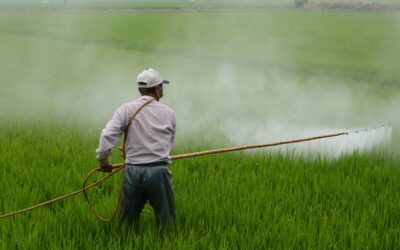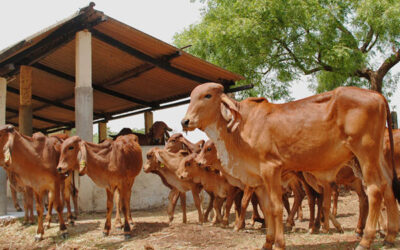- .Adoption of new technologies: This depends on various factors such as socioeconomic conditions, geography, crop diversity, irrigation capabilities, etc. The role of technology in agriculture can be diverse through the use of modern agricultural machinery, improved seed varieties, application of fertilizers/pesticides, genetic engineering, etc. This leads to increased productivity by preventing soil degradation, using water efficiently, and reducing the use of chemicals. These factors directly affect the quality and quantity of produce and lead to cost reductions.
- Improving soil quality: indiscriminate use of fertilizers, pesticides and herbicides is an endemic problem plaguing agriculture. The goal of improving the productive potential of soil by addressing its physical and microbiological properties includes the development of chemical measures (macro- and micronutrients). A special emphasis is needed in arid areas.
- Enhancing irrigation and management: the agricultural sector is the largest consumer of water in India. However, limited availability of water is leading to increasing competition between industry, households and agriculture. An immediate need is to plan and manage water in river basins to achieve synergy in consumption on an inter-sectoral basis. This requires increasing supply through rainwater harvesting, aquifer recharge, and rehabilitation of existing wells and ponds. Demand management should be prioritized through improved irrigation methods, including sprinkler and drip irrigation. This requires a movement of water authority and regulation of groundwater use to achieve shared use of rainwater, river water, groundwater, seawater, and treated wastewater.
- Agricultural credit and crop insurance: Reforms in this area are key to increasing small farm productivity. Simple and affordable credit must be made available through official channels for farmers who normally rely on private moneylenders. Risk mitigation through crop insurance needs immediate reform. The speed and mechanics of this process require policymakers to develop innovative solutions that align the financial system with farmers’ needs.
- Efficient markets: the importance of opportunities for assured and remunerative sales of produce will ultimately determine the economic well-being and sustainability of the agricultural sector. Market reforms are a consequence of supply and demand and must be linked to production planning, not just government support measures. The link between consumption and trade chains is key to the long-term survival and growth of agriculture.



